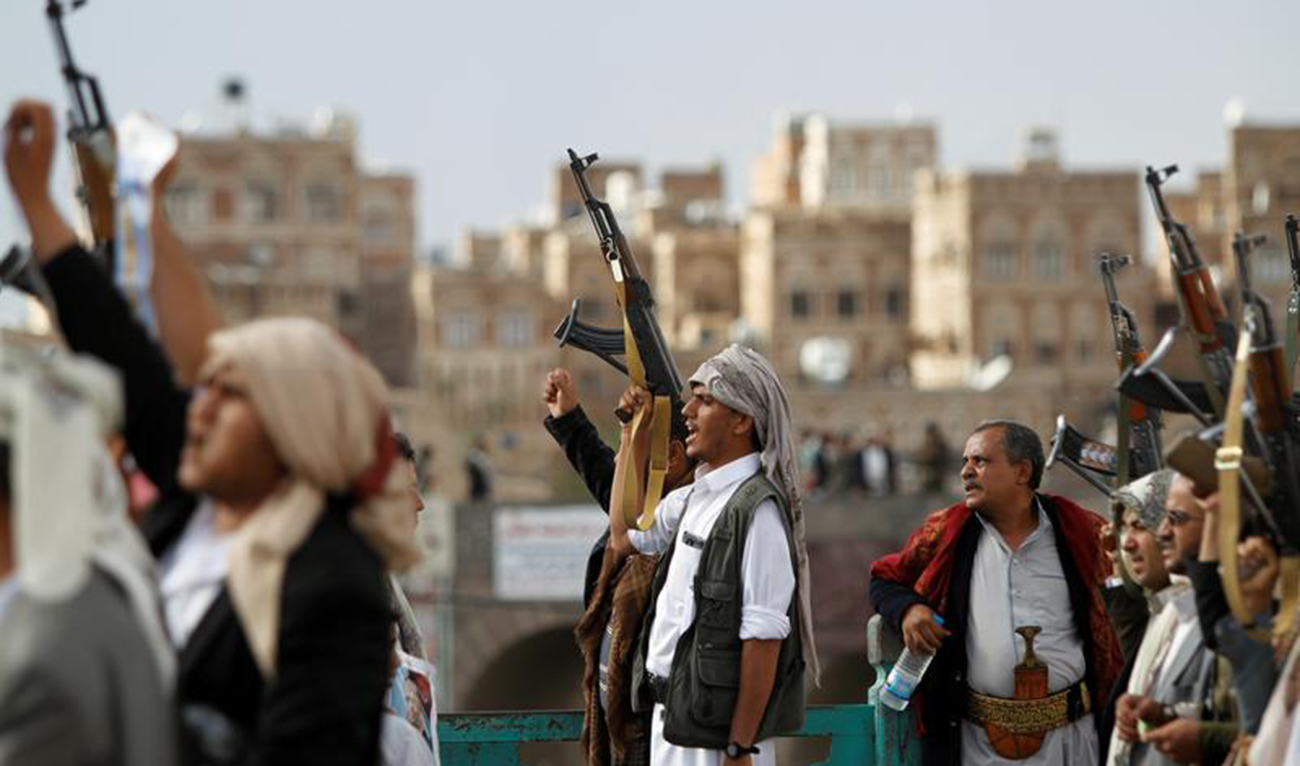Kurdish leader blames Baghdad over wages as protests rage
BAGHDAD: The prime minister of Iraq’s northern Kurdish-run region on Wednesday blamed the federal government in Baghdad for delaying crucial budget transfers as violent protests over salary payments left eight dead in the past week.
Also on Wednesday, two explosions targeted an oil field in northern Kirkuk province in what the Oil Ministry called a terrorist attack. No casualties were immediately reported in the blasts. The area is disputed between Baghdad and the Kurdish region, and Daesh militants routinely exploit security gaps there.
Karim Hattab, the undersecretary for extraction at the ministry, said two wells were targeted in the Khabbaz oil field and caused a fire. Firefighting teams from state-run North Oil Company and security forces were dispatched to the scene, the ministry added. The field produces 2,000 barrels per day.
In the province of Sulimaniyah in recent days, hundreds have been protesting in multiple towns against two main Kurdish political blocs over public salary payment delays and perceived corruption. Iraq’s semi-official High Commission for Human Rights says a total of eight protesters were killed in the areas of Chamchamal, Kefri Darbendikan, Khormal and Saidsadiq. Demonstrators burned down party headquarters and other public offices.
Masrour Barzani, prime minister of the semi-autonomous Kurdish-controlled region, said the right to peaceful protest was “vital” and condemned the violence as “unacceptable,” in a statement.
“It is our shared responsibility to maintain the safety and security of everyone, including protesters and public and private property,” he said.
The protests are largely driven by angry unemployed youth and public sector workers who have not been paid because of a severe fiscal crisis. The Kurdish administration has only paid four months of wages since the start of 2020, and has deducted 21% from the monthly pay to public workers.
Barzani’s statement blamed the federal government, saying it has not made budget transfers needed to make wage payments.
“For many months now we have worked hard to reach a fair constitutional settlement with the federal government,” he said. “We have not left any excuses for Baghdad to fail to deliver it’s obligations to Kurdistan.”
Previous governments in Baghdad have withheld budget allocations to the Kurdish region as punishment for its independent oil export policy. Apart from the federal transfers, the region’s oil exports are its main source of revenue. Under a new agreement inked earlier this year, the Kurdish region was to receive a share of the state budget, in exchange for half its customs revenues.
The federal government, meanwhile, has been crippled by a severe liquidity crisis in the wake of spiraling oil prices that have slashed state coffers. Iraqi lawmakers passed a second emergency internal borrowing bill last month, enabling Baghdad to access $10 billion indirectly from the country’s foreign currency reserves.
But the law’s adoption sparked a political crisis between Baghdad and Irbil, where the Kurdish regional government is based. Kurdish lawmakers nearly boycotted the vote after some of the other lawmakers sought to halt allocations to the northern region’s administration.
“We have shown our willingness in practice to work with the budget deficit law despite reservations on its content and the way in which it was passed,” Barzani said. “We expect reciprocal steps from Baghdad to reach and implement an agreement.”
The UN on Tuesday condemned the violence in Sulimaniyah, calling for an investigation and urging Kurdish leaders to “safeguard the freedoms of assembly and expression.”

Iraqis slowly rebuild Mosul, with little aid from governmentSix protesters killed amid unrest in Iraq’s Kurdistan region



